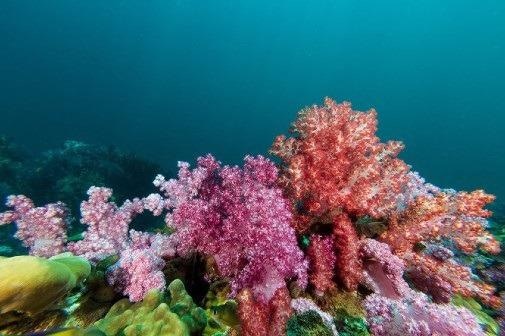Apr 1 2021
Researchers from the University of York note that more studies are required on the environmental effect of sunscreen on the coral reefs across the globe.
 Coral reefs are in decline, so more research is needed into the potential impacts of sunscreen pollutants. Image Credit: University of York.
Coral reefs are in decline, so more research is needed into the potential impacts of sunscreen pollutants. Image Credit: University of York.
Due to concerns over the number of cancer cases caused by overexposure to UV solar radiation, there has been a wide-scale production and usage of skin protection products. But the chemical compounds utilized in such products can be discharged to the environment at the points of manufacture and through consumer use.
It has been suggested that UV-filter compounds have hazardous impacts on marine organisms, but studies in this area are sparse and do not consider some variables, like variations in environmental conditions.
In Decline
Given the declining status of coral reef ecosystems and the many stressors they already face, it is important to identify the potential occurrence and toxicological risks associated with UV-filter exposure to reef ecosystems.
Dr Brett Sallach, Department of Environment and Geography, University of York
Sallach continued, “Our research aimed to identify what research was out there and what gaps we had in our knowledge. Importantly we needed to understand what areas could be considered priority for future attention in order to understand the impacts of these products, and hopefully prevent any further damage to the environment.
“Undoubtedly products that can help protect against the harmful effects of UV radiation on human health are hugely important, and therefore we need reliable and extensive evidence to suggest any changes or scaling back of these products,” added Sallach.
Limitations
Scientists had a discussion with industry representatives and experts within the field of marine UV-filter exposure to gain insights into the restrictions of current research and what areas need immediate attention.
They discovered that most of the studies on UV-filter compounds concentrate on freshwater ecosystems and organisms, and that environmental conditions can boost or bring down the reaction to toxic elements, thereby making the actual risk of the compounds hard to confirm.
This study does not easily apply to the distinctive ecology of coral reefs, and thus long-standing environmental monitoring would be required in subtropical and tropical climates to comprehend the toxic impacts in such places.
Policymakers
We make four recommendations for priority research areas going forward, based on our consultation with experts. We need more work in the area of understanding UV-filter toxicity under different climate conditions, and long-term study into exposure and recovery of coral reefs.
Yasmine Watkins, Study Lead, Department of Environment and Geography, University of York
“We also need to know realistic exposure to these compounds and how long they exist in the marine environment, to determine what the ‘safe’ limits are,” added Watkins, who headed the study as part of her master’s degree in the Department of Environment and Geography.
The goal of scientists is to underscore such priority areas to better notify regulators and policymakers to enhance conservation and management of coral reefs, while guaranteeing that human health can still be safeguarded by UV-filter products.
Journal Reference:
Watkins, Y S D & Sallach, J B (2021) Investigating the exposure and impacts of chemical UV‐filters in coral reef ecosystems: Review and research gap prioritization. Integrated Environmental Assessment and Management. doi.org/10.1002/ieam.4411.